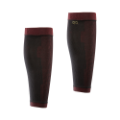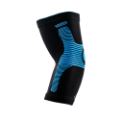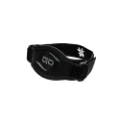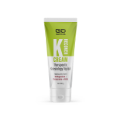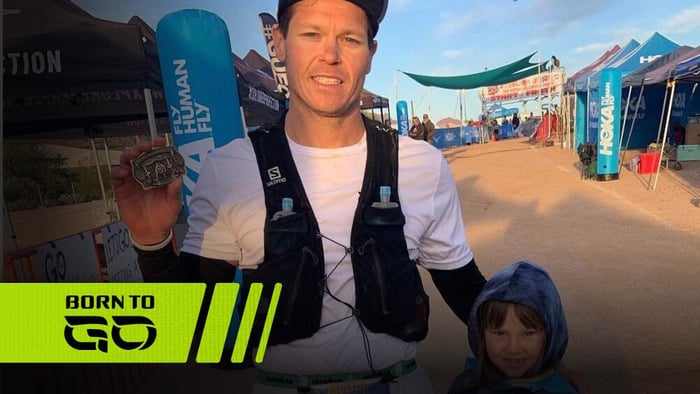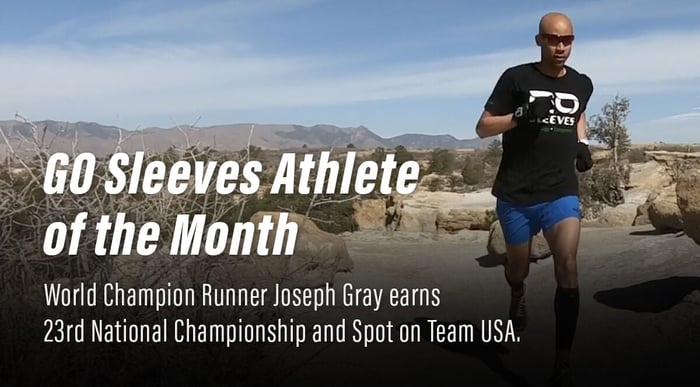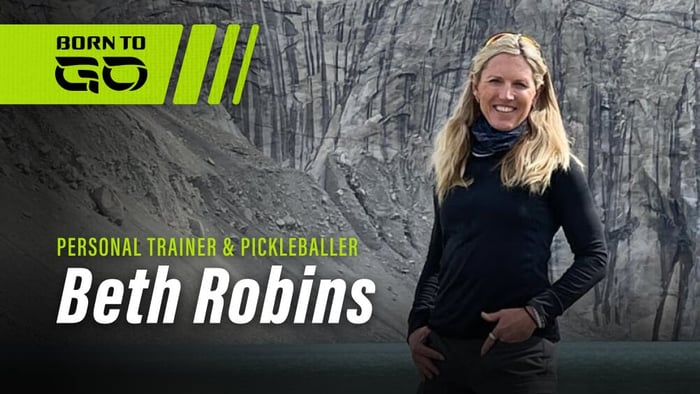U.S. Army veteran and ultramarathoner Erik Koenig discovers the best medicine is movement
Erik Koenig, a former U.S. Army infantryman and accomplished ultramarathoner, is respected in the running community as a military and sports veteran. With an impressive number of races under his belt, he has traveled a long road to get to where he is now.
Serious Setbacks
After breaking his foot and tearing his Achilles during combat while serving in the Army, he left the service by being medically retired in early 2014, unable to return to the work he loved, and was told he would never run again. Overwhelmed with the emotional and mental trauma of PTSD and the physical toll of his injuries, he turned to doctors for help. His specialists weren’t optimistic—they told him there was nothing anyone could do and prescribed medication to help him cope and manage his pain.
Erik didn’t want to rely on prescription drugs and stopped taking them. Instead, he turned to food, beer, and hard liquor to ease his suffering. He soon spiraled into addiction, jeopardizing his marriage and relationships with his kids to nearly losing them.
Knowing he needed a change, he, his wife, and his kids left their home in Texas to be near family in California. But the move didn’t help Erik overcome his addictions and growing despair. One night after his wife and children had gone to bed, he began drinking and opted for a permanent solution: ending his life. He pulled out his gun and aimed it at his head, but it didn’t go off when he pulled the trigger.
Healing Through Movement
This turn of fate was a defining moment for Erik. With renewed purpose, he resolved to put the past behind him, move forward, and improve his life. The following day he told his wife that he would get help. He went to the VA and met with psychologists, who helped him establish a support system within his friend group and start his journey toward healing.
Erik started hiking, swimming, and climbing, and soon he was applying to compete on the TV show “Ninja Warrior” and practicing getting through challenging obstacle courses. But it wasn’t until the gyms and swimming pools closed during the pandemic that he got into running. And despite being told his injuries would always be a barrier, he could run a few miles.
A few miles became more miles until eventually— after a few false starts—he finished the 75 Hard Challenge, "a transformative mental toughness program” that calls for strict adherence to a diet of your choice, two 45-minute daily workouts one being outdoors, no alcohol, progress photos, reading 10 pages in a non-fiction book, and drinking a gallon of water daily for 75 days.
Going the Distance
Emboldened by his success with the 75 Hard, Erik signed up for IRONMAN Wisconsin in 2020, to race in 2021 and despite never having run a race, he began training for the IRONMAN race and ended up racing his first 50k trail race in the process. “I was putting in 30 hours a week of swimming, biking, running, strength training, and yoga,” he said. “Every day, I had something different going on; I was still making time for my kids.” He would run with his children in a stroller, bike for three hours while they played, swim on family vacations while they hung out on the beach, and did whatever he could to balance family time with his running ambitions.
He crushed it.
During and after this first race, he discovered GO Sleeves through the Road Dog Podcast hosted by Luis Escobar, a well-known photographer in the endurance world and an ultrarunner himself. This opened the door for him to gain knowledge of preventing pain and correcting injuries, and speeding up recovery time—a game-changer. GO Sleeves aided in his recovery so he could push through the pain and go even further beyond what his doctors—and he—thought possible. And that December, he finished a 50-mile race in 10 hours.
In 2021, he ran the iconic 35-mile Santa Barbara Nine Trails, followed by a sponsored triathlon with Athletic Brewing Co. for IRONMAN Oceanside 70.3 and then 150 miles trail running at Born to Run Ultramarathons. The momentum continued, with even more races in 2022. And in August, he was ready for the Hurt 100, an arduous 100-mile endurance run through the sprawling rain forest of Honolulu, Hawaii.
Knowing what he was up against, Erik went in with a strategy—one that fell apart when he slipped and injured his knee, but he continued the race despite the pain. It slowed him down and the rough, rocky and rooted terrain gave him blisters and aggravated his injury, but with the help of his GO Sleeves knee sleeve and calf sleeves, he finished the race in 35 hours.
Healing
Erik owes his firm belief in the power of recovery to GO Sleeves. “Just to finish that race,” he says, “and I've only been running for like two years. It's just crazy to achieve that from going from no marathons—no halves, no 10Ks—to running one of the hardest 100-mile races known to man. And I was the 50th finisher out of 56.”
The experience made him realize that to keep pushing himself to go as far as he could, he needed to take the time to rest and recuperate. He took a break after running the Hurt 100 and wore his GO Sleeves during recovery before starting back up with a 10K in San Luis Obispo at the La Cuesta Ranch Trail run, then sleep deprivation training by doing a 4x4x48 hour challenge for another Born to Run 200 mile attempt.
He rolled his ankle at mile 80 and again at 90. So he stopped to rest using his sleeves and GO Sleeves K-Recover Cream to manage the swelling. Then off he went with an injured ankle, blisters, and five pairs of shoes to finish the full 200 hundred miles in first place.
"Now that I've proven that I can move and heal myself through movement, l think any possibility is achievable."
- Erik KoenigComing Full Circle
Erik’s story now inspires other runners to fight through whatever personal struggles they’re going through to conquer their demons, defy barriers, and embrace the healing power of recovery to transcend their limitations—and he even offers moral support and advice to others who’ve been through situations like his. In this Q&A with GO Fitness, Erik shares more about his experience at Born to Run, his future ambitions and what keeps him motivated, and tips for runners to move forward and be their best.
Read the full interview below with GO Sleeves CEO Darren Lancaster.
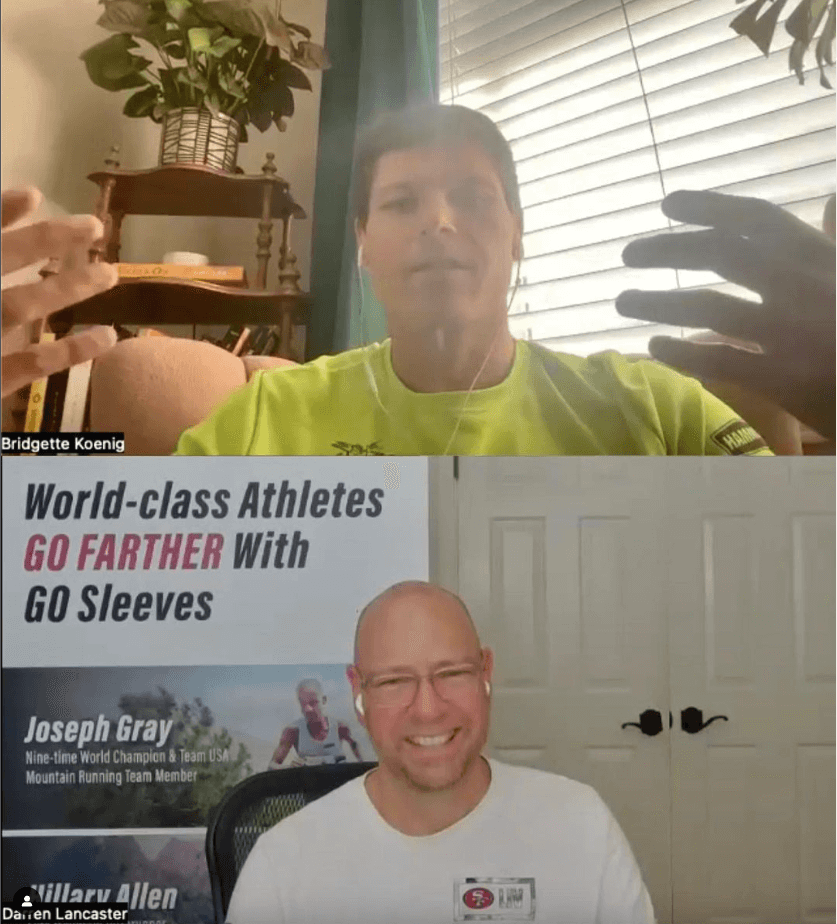
Darren: What made you decide to write about your experience?
Erik: Starting last summer, I started journaling. So it was meditative for me talking about where my issues have come from, with my demons with PTSD from the military, and just kind of talking through the scenario of when I got hurt in my initial accident in combat, and how I relive it a lot in my dreams, and I have nightmares. For me, it helped to start getting it out and talking about it, and then leading up to how it was affecting my home life, because I never sought to fix any of those issues.
Darren: It’s good you didn't destroy yourself putting in another 20 to 30 at Born to Run when you’ve got this other goal.
Erik: Yeah, it was 24 hours left. I could have easily got another 60 to 70 miles. But at the same time, I promised my wife that I would spend the last night with her, enjoying the band. And so that's what we did. I went home and showered since we live 20 minutes from the ranch. Then we came back and sat by the fire with our friends. And we just had fun.
Darren: There's so much support there and good, positive energy at that race. Now you're using it as a build. So that's great.
Erik: Yeah, agreed. After doing that race, it kind of opened my eyes. I think I'm pretty fast at doing 200. So currently, Candice Burt, she's the director of the 200 races. She's at day 186 of doing a 50K or more a day, for her [ultramarathon] world record. And it has just inspired me more. She's also the race director of Bigfoot Tahoe in Moab. In May, she has an open for the Triple Crown registration where you take on all three in the same year.
So next year, and I'm thinking to myself, man, like, I think I could do that. With the way that I felt and how fast I've recovered after a 200, I'm pretty sure I could do that. Because each race has about the same elevation—other than Moab and the Big Foots 200 through the Cascades. But overall, the amount of elevation is pretty much equal to a little more than what it was at Born to Run because after 200 [miles] it was 23,000 feet in elevation or so, and [was] pretty much equivalent to Hurt as well. But I've got AC coming up, too. That's another 20,000-foot elevation race. So I'm getting a lot of that elevation under my belt, and the distance.
Darren: It's just amazing. You've been able to stack on so much volume coming into the sport, from nowhere… And it really says something about your body and its ability to recover naturally… Obviously, you're doing everything you can to get everything dialed in with your tools, nutrition, and otherwise, but your body has to cooperate, too.
Erik: Nutrition-wise, when I started the 75 Hard program, I switched completely to being vegan and plant-based. It's crazy if it doesn't work, but it has been working so it's made a believer out of me. Those changes in my health have made a significant difference. I've gone from 285 pounds to 165 pounds. The thing that I think that I've mastered to do so many miles is my mind. I get into a place where I don't even think about anything. I don't think about the hurt. I don't think about what's going on in the world around me. It's just all that I am doing presently and when I get to the aid station, what I want to eat. That's the only thing I think about, I'm like, "Ooh, you know, a burger would be nice... or a burrito."
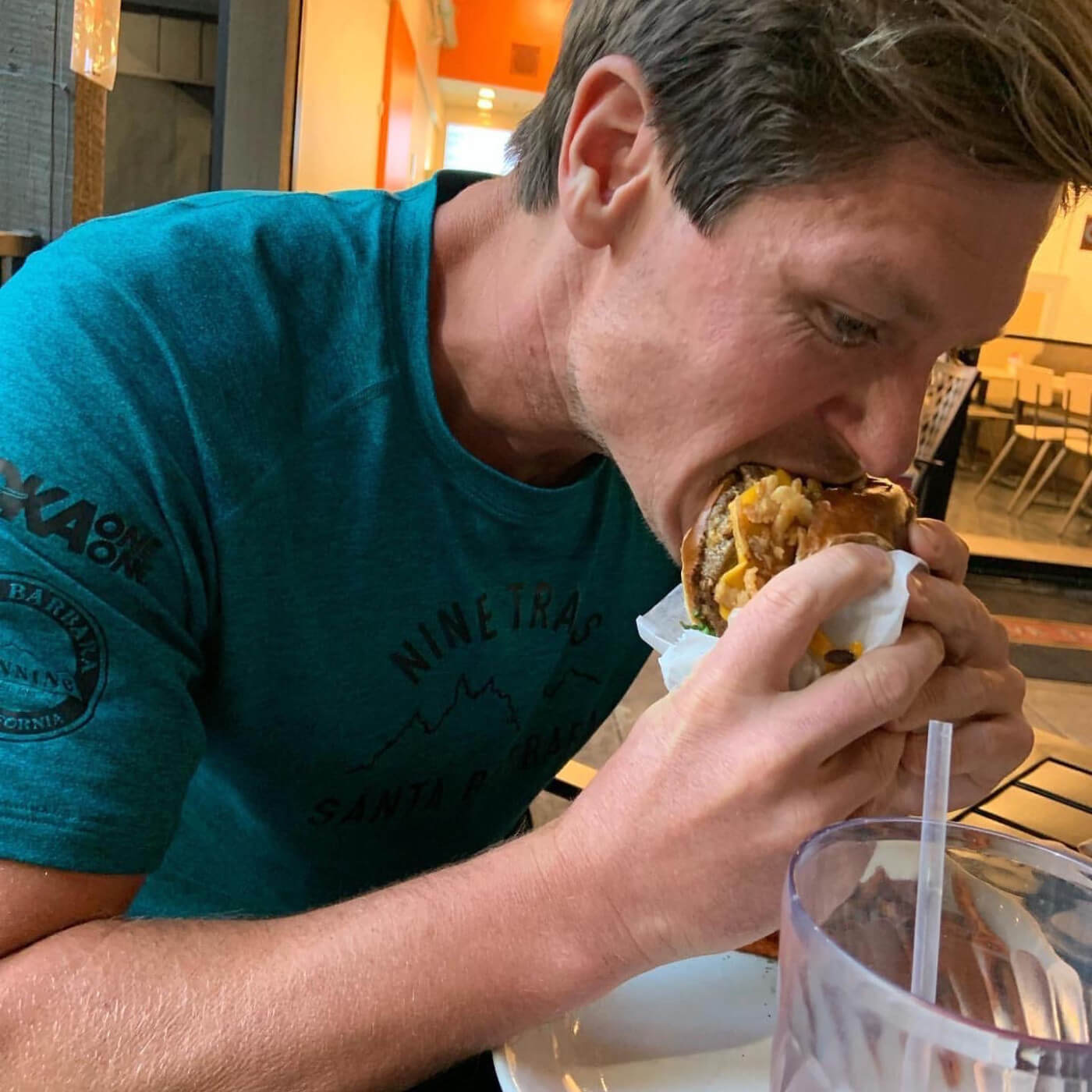
Darren: You've learned how to quiet—instead of numb—the mind. And that's no small thing.
Erik: Yeah, it's just the empty headspace; there's nothing you can do about what's going on in the world. All you can do is focus on what you're doing. And once you master that, you can master anything, and just realize, the only thing you have control over is what you can do. And so you do the training. You put in the work day in and day out. You know what you're capable of, you just have to believe in yourself. And once you start believing in yourself, that's when it all comes full circle. And that's where my belief just comes out. And I'm just like, wow, I had some doubts. But as soon as you shut those doubts out and just say: “You did the work. You got yourself here. You know how to continue. You know how to finish.” And the finish is going to be on you.
So yes, I had a really high goal. But at the same time, other things happened and I got picked for another race. So I had to be tactical about it with myself and beat myself in the middle and say, Well, this is the new goal now. Yeah, that would be nice someday, but THIS is what I'm doing. Because this I have control over. And that's how I'm going to make it fulfilling for myself.
Darren: Yeah, that's perfect. Maybe one year will be your year to take down the record at Born to Run.
Erik: Maybe. Maybe Luis will change it to a five-day race. Last year, he asked me, “Hey Eric, you know, if you want to run 500 miles, we could do that. It's a 10-day race.” And I was just like, “I think I have to do a 300 or 250 before that to see how my body reacts.” But yeah, now he's got that crazy idea planted in my head. And now he's trying to push me to do Badwater, and I'm like, well, I've been interested in and reading a lot about it. I think I have to train on it a little bit first, because I'm not really a road runner, and that race is on the road.
Darren: That's such a big change. But I could see your body being compatible with that if… that's what you wanted to do.
Erik: Yeah, I would focus more on strength training again to build the legs for that. And then on top of it do heat training as well. Everything can be adjusted. But right now, I think I'm enjoying the trails a lot more. I know I can do it, but is it going to be worth it to me? Or is it going to be worth it to help somebody else complete that goal? I want to go around and do all these other races because there are so many iconic races, but I think I specialized in the bigger distances.
Darren: When you are not training, what kind of activity do you enjoy the most?
Erik: Honestly, I like going and just sitting on the beach and watching the ocean. Like, there's nothing more relaxing than just doing that, and I love swimming. I don't really look at swimming as something physical that is training. Yes, I use it for recovery. And yes, there are times that I use it for building my endurance, but it's so relaxing, especially in the ocean, because you see so much in nature that you don't see in the outside world. Because it's under the water. To me, it's, you can't talk under the water. You know what I mean? Like, you're in your own thoughts. And yeah, that's just something that you keep for yourself, is what your thoughts are, and how beautiful something like that is.
Same with sitting on the beach and just watching the ocean, you could be sitting with somebody and explaining how you see it and all that with the sunset or the sunrise. Also, watching my kids grow up and just running around, and watching them on the beach, too. It's just great to give them the opportunity to explore. I know, it's kind of cliche, but I like to see them being able to experience things that maybe I didn't as a kid. I'll take the kids to the movies, we'll go to the jump park at the trampoline park. Climbing is something I like to do for fun just because it involves problem-solving. And I don't look at that as training either.
Darren: What do you think running has done for you in this process you have been going through?
Erik: Running to me is a natural medicine. Most of us are born with the ability to do it. And just learning how to do it the right way, not everybody knows how to learn how to do it right away. It's taken me, what? Thirty years to figure out how to run, right? But it's something we do without knowing it when we're a kid when we're running around the yard or something like that. And it just brings back that pastime where I can run for 45 minutes, anything in the world could be wrong with me, you have so many thoughts going through my head, but a run is so meditative that I forget everything. So it's a natural medicine, that I look at it as I don't have to rely on medications to silence the voices or silence the actions that happen, and it helps relieve my stress. And helps me relieve the anger that I have built up. And it just brings me to peace every day. So I know I don't run every day…
I'm on kind of a streak right now, where I've been running every day, but there are days that I take off because I just want to sit down and kind of relax. But if I get kind of antsy or whatever, my wife's like, just go on a run. And so after I do, then it just seems like everything is okay. It's okay to hurt. It's okay to be hurt. It's okay to feel hurt. It's okay to not be okay. But it all depends on how you carry yourself through your life. And that's where I think with running, it's gotten me past so many barriers I had in front of me. Before that, I didn't think that I had the ability to do this. And now that I've proven that I can move and heal myself through movement, l think any possibility is achievable.
I don't listen to anybody that tells me I can't do anything, especially if they haven't done it themselves. That's kind of my mindset now. Like somebody says, “You're crazy, you can't run 100 miles,” and I'm like, “Well, I have, and I'm still gonna continue to do it until the day that I die. I plan on doing this past 80 years old. I'm gonna do this forever. There's no changing it, this is my life.” And this is what I live for. And I want to help spread the message to anybody else. That they could find peace through it as well. They might not be running— it might be walking, or any type of movement. But if you can move your body in any way, or get outside, it is a natural therapy.
Darren: Yeah, you nailed it. This is where it's so helpful, I think, to tell your story. And, look, your story is going to be fairly extreme for most people. But that's not really the point. It's again, it's like, whatever has happened, this is life.
Erik: Yeah, this is life. Stuff happens to everybody, and not everybody's willing to speak about it. But that's where we need to stop and talk about it because that's why there are problems with so much stress built up. Nobody's willing to talk about it with others because it's been frowned upon that we don't talk about that stuff because, you know, after a lot of wars, people don't talk about combat. They don't talk about their stresses. They don't talk about what they saw and what they were a part of. There are professionals that talk to you about this stuff, and it needs to be talked about.
Everybody's story matters. Everybody has that opportunity to be heard as well. And that's what it is. You’ve got to let somebody say their piece and give them that opportunity. And that’s how I live my life now. In travel, you see so many people using their technology and on their phones. And whenever I travel, I put my phone away. And I just want to talk to people who want to communicate. I'll point out, like, if they're looking down or whatever, and sad, [and just say], “Hey, how are you doing?” Just something simple like that. Just getting somebody out of their zone and having some type of confrontational avoidance.
It's very simple, just ask somebody how their day is, and you can change everything around you, and I wish it had happened to me. Nobody ever did that. And I had to figure it out the hard way. And that's why I really want people to hear my story because I'm not afraid to tell it. Like, that's what happened. That's what it is. And don't be afraid to share.
Darren: I appreciate you. I hope we can do justice by telling your story appropriately, so you come across as who you are.
Erik: Since my podcast with Luis came out on his Road Dog Podcast, there have already been multiple people that have reached out [saying] that they had the same experience—that they were gonna commit suicide, too. And then they said, “I haven't told anybody this, and I'm coming out to you saying it.”
My response is always, “Whatever I can do to help you. if you need to just talk to somebody, here's my number, I have no problem with you calling me in the middle of the night or texting me. We can talk about anything. Sports. Running. What you did today, what really ticked you off, or, just simple things.”
Here’s the thing: Whatever happened, happened—there's nothing you can do to fix it other than to live your life and try your best to do what you can going forward. And that's the message, just whatever happened in the past, it's in the past, man. There's nothing we can do about it. It's already happened. So we live for the day, and we move forward.

